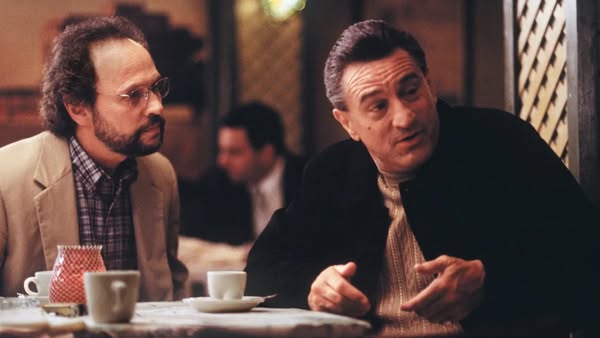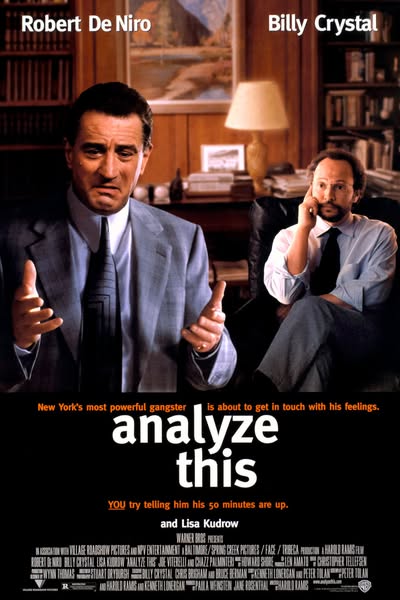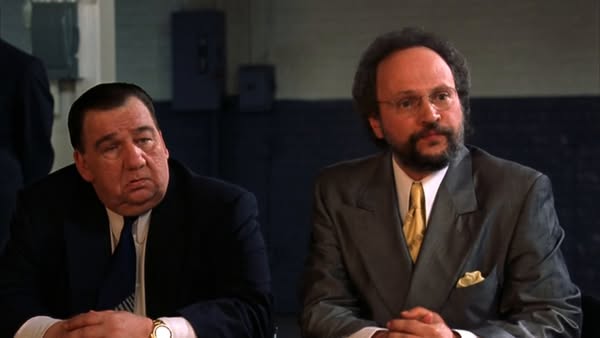Analyze This (1999)

Analyze This is a 1999 comedy film directed by Harold Ramis, starring Robert De Niro and Billy Crystal. The film cleverly blends elements of mobster drama and comedy, exploring themes of friendship, vulnerability, and the complexities of mental health.
The story centers on Paul Vitti (De Niro), a powerful mob boss who begins experiencing anxiety attacks as he faces increasing pressure in his criminal operations. In an effort to address his emotional turmoil, he seeks help from Dr. Ben Sobel (Crystal), a psychiatrist who is initially reluctant to take on a mobster as a patient. Their relationship quickly becomes a comedic clash of personalities, as Ben tries to maintain his professional demeanor while dealing with Vitti’s larger-than-life personality and criminal lifestyle.

As the plot unfolds, the film explores the dynamics of their unconventional therapy sessions, where the tough-guy persona of Vitti is juxtaposed with Ben’s attempts to provide guidance and support. The humor arises from the absurdity of a mobster seeking therapy and the resulting situations that ensue, particularly as Vitti’s behavior begins to affect Ben’s own life, including his upcoming wedding.
De Niro’s performance is noteworthy for its comedic timing; he successfully parodies his iconic tough-guy roles while still delivering a nuanced portrayal of vulnerability. Crystal brings his signature charm and wit to the role of Ben, providing a perfect foil to Vitti’s intensity.

Analyze This cleverly addresses themes of masculinity and emotional health, challenging the stereotype that men must always be stoic and strong. It highlights the importance of seeking help and the value of emotional expression, even within the context of a mobster’s life.

The film received positive reviews, particularly for the performances of its leads and its humorous take on serious topics. It was successful at the box office, leading to a sequel, Analyze That (2002).
In conclusion, Analyze This is a smart and entertaining comedy that effectively blends humor with deeper themes of vulnerability and friendship. Its unique premise and strong performances make it a memorable entry in the buddy comedy genre, appealing to both fans of traditional comedies and those who appreciate character-driven narratives.











